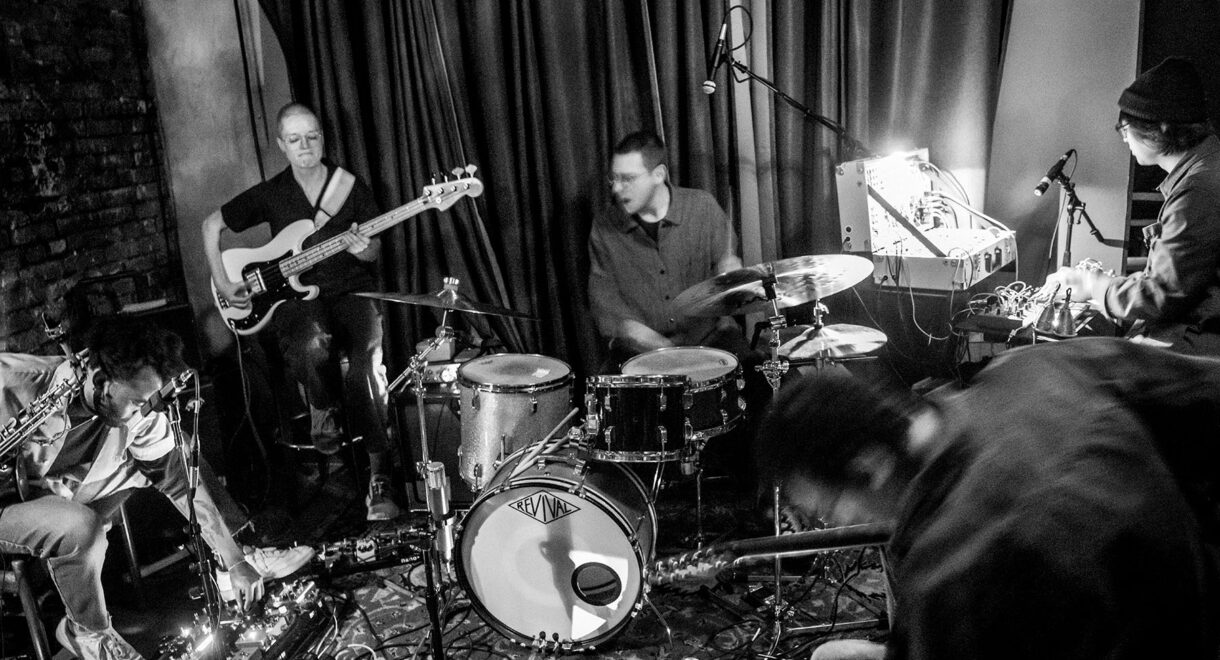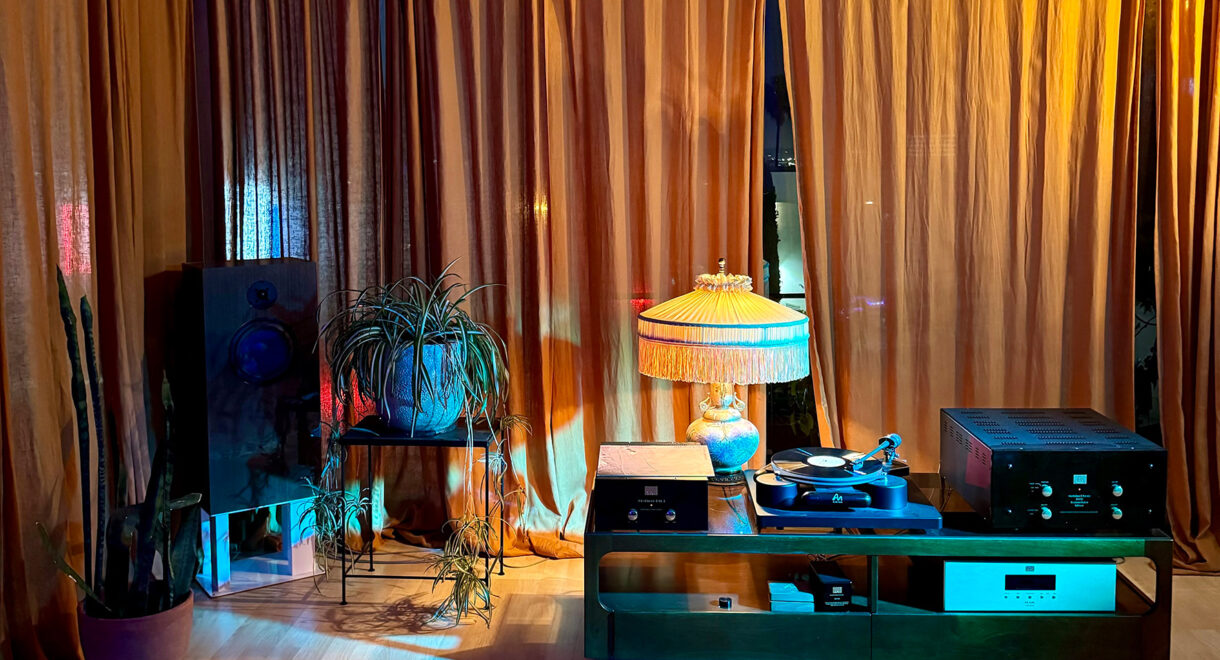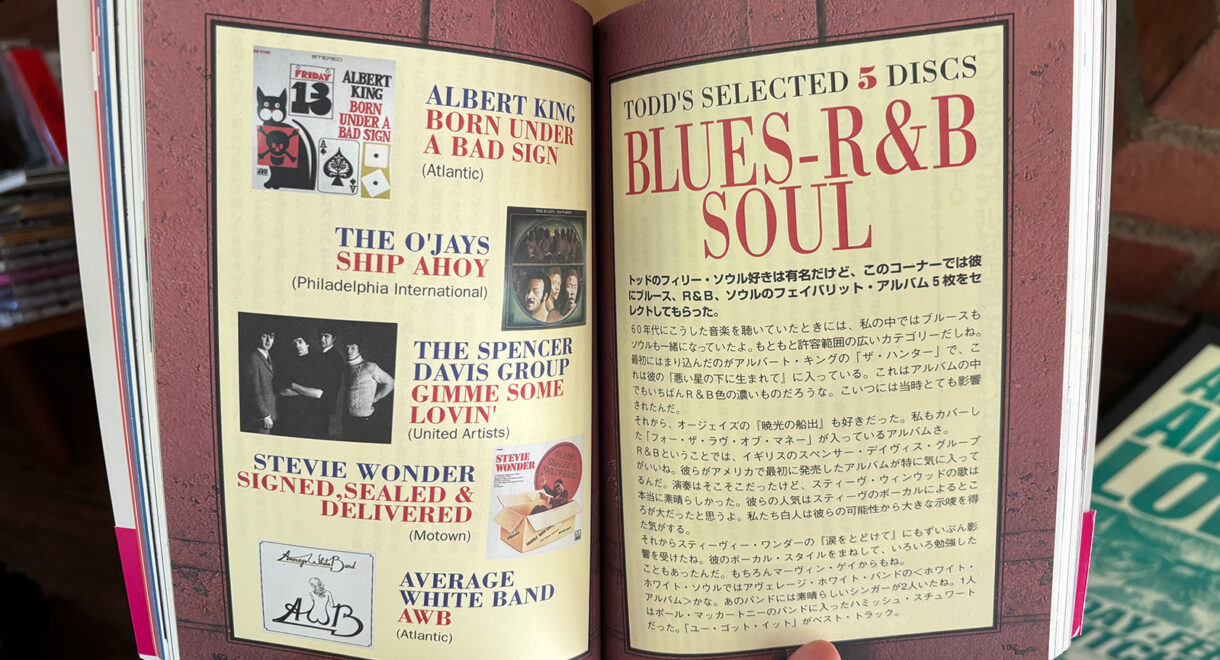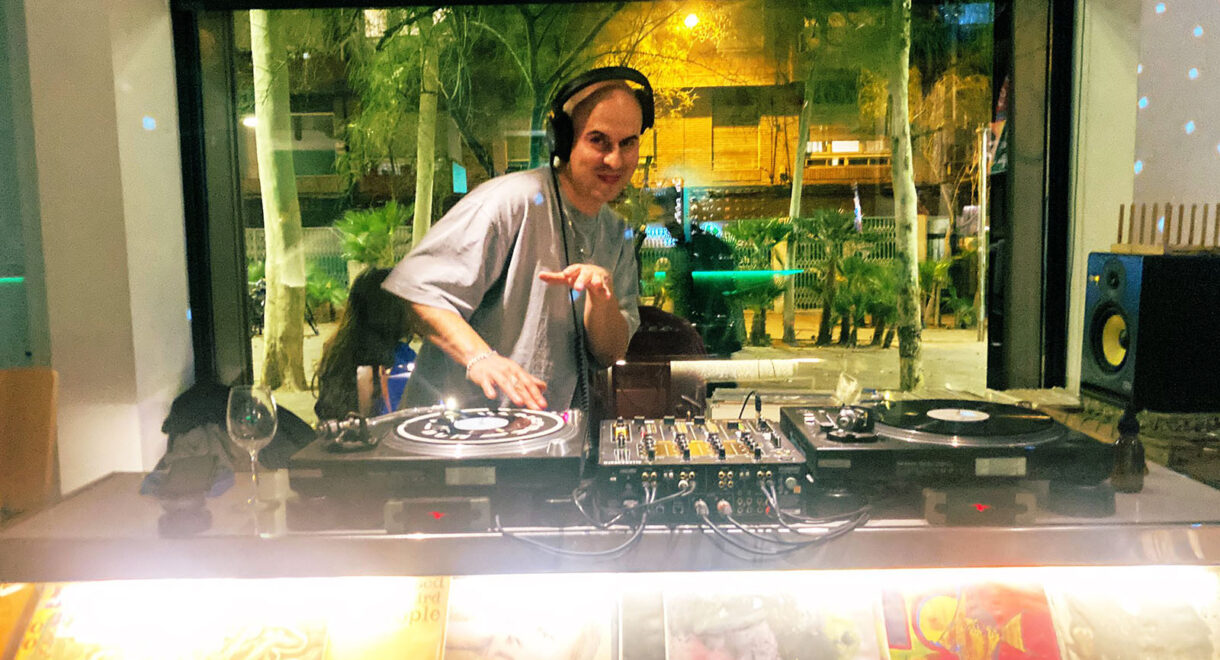In conversation with Small Medium Large, a new quintet from the burgeoning new West Coast jazz & improvised music scene. In 2018, LA-based jazz and post-rock guitarist Jeff […]
The Sweet Keys of Hailu Mergia: An Interview with a Legend of Ethiopian Jazz

Tana Yonas speaks to the great Hailu Mergia before his June 24th performance at The Regent, Los Angeles.
Haliu Mergia’s story started in an unassuming small village just northeast of the Ethiopian capital of Addis Ababa. As a young boy, he started to fill more and more of his time with the melodies and lyrics from popular traditional music that came rushing out of the radios and music halls around him. By 14 he had taught himself the accordion and soon enough his hobby became his whole world.
You can hear why Mergia is held in such high esteem many decades into his career by playing any of his compositions, both on his own or in collaboration with Ethiopian jazz pioneers the Wallias Band — which served as a launching pad for other greats like Mahmoud Aman and Girma Beyene. He came of age as a musician in the aptly titled “Swinging Addis,” a time through the 60’s and early 70’s when homegrown record labels like Amha and international luxury hotels with lavish venues created an environment for a prolific music scene. This movement produced music that remains as relevant as ever.
This Ethiopian sonic expansion was cut short in the mid 70’s by a military junta, the Derg, as they overthrew the 500-year-old Ethiopian monarchy while King Haile Sallasie was at the throne. This forced the music scene underground and eventually artists like Mergia found home on foreign lands. This escape from the cruel and draconian new government was not only to protect their livelihoods, but to protect their lives and the lives of their loved ones.
Mergia landed in Washington D.C., where would transition from a gigging musician to a taxi driver. Then he got a call that changed his life: Brian Shimkovitz from the label Awesome Tapes from Africa, who found one of his recordings while collecting and sharing music he found for his blog. He asked Mergia if he was interested in a reissue and possibly playing again. Mergia said yes, which catapulted him back onto the stages he had longed for. It was also the start of a friendship between the two. They’ve recently re-released another classic recording of Mergia’s, Tezeta.
Mergia is currently playing a string of shows around the globe, including a stop in Los Angeles on June 24th. If you’re in the area, you can find tickets here: https://regentdtla.com/tm-event/hailu-mergia/
We got a chance to sit down with Mergia and talk a bit about what it’s like being back on the road post lockdown, and his creative process when fusing new moods into an ancient musical tradition.
Tana Yonas: Where did your interest in music first start? And, how did you start playing the piano?
Hailu Mergia: I started when I grew up in the countryside. It was a very long time ago. At first I just started as a singer, and then after that, I started playing in a club. When I was starting to sing I was trying to imitate different singers in Ethiopia.
Then I was a kind of boy scout in the army and took some piano lessons when I was there. I studied for about one year. It actually started as a hobby and my mother supported me even though she didn’t like that I was a musician. She still supported me. I started with Farfisa keyboard but we had different keyboards in the club, and we were changing keyboards all the time.

This tour is on the heels of the recent reissue from Awesome Tapes from Africa, Tezeta – which is so beautiful, by the way. I'm curious if you could explain what the word Tezeta means to you, because it really is such a powerful word in Amharic (official language of Ethiopia).
Tezeta is a very nostalgic music and a very famous type of music in Ethiopian communities everywhere. It’s almost like our national anthem. When I play Tezeta, I play it in many different ways. Most of the time, I don’t play it with slow rhythm. I play it with a fast beat, and change the arrangement every now and then, but I don’t change traditional standards.
Do you feel like there are certain emotions that Ethiopian music captures better than other types of music?
Well, to me, yes. Because we play music in a different way in Ethiopia. I just want to do some kind of research on the way we do the arrangements, and I am always trying to find new kinds of melodies in it. And most of the time my improvisations sound like a traditional rendition. I don’t want to mess with standards. Maybe you can understand when you listen to my music, I suppose.
Why do you think Tezeta is such a popular genre of music in Ethiopia?
Tezeta are all very old songs, and nobody knows who composed it or how it came to be even. People have different ideas on who composed some music but we really don’t know. They are very old songs.
But Ethiopians just want to feel tezeta, I think, because it reminds you of the memory of love or any kind of the future you want. There are a lot of meanings behind the Tezeta melody. It depends how you want to interpret it.
People when they listen to it go very far away from where they are. And they just, I cannot explain to you the whole thing. But I know people, they really enjoy listening to that music.
And they enjoy listening to this latest release. In songs like “Ou- Ou-Ta”, I can hear some reggae influences. Were you listening to reggae?
Back then? Oh yes. When I used to play with Walias Band, we always played modern things we liked. We wanted to do things in a very modern way. Sometimes, we play some reggae and then we play some swing. And it just depends what kind of music we’re going to arrange. Because of that, there is some creative inspiration with the mentioned influences.
Last Ethiopian Easter, my father gave me his copy of the Best of the Walias Band that he got back in the eighties and I didn't even know he had it. When I got to play the whole record at home and listened to it, I was really struck with how psychedelic your playing style was on songs like “Kalatashew Akal.” Were you listening to psychedelic music, or where did that far out sound come from?
Yeah, I like that kind of music. But most of the time, we’re trying to create new things for the material we were arranging.
Did you stick with the Farfisa keyboard or did you experiment with other instruments to get new sounds?
I always change it. For example, if you listen to the Shemonmuanaye album, I wanted to create a kind of new sound. When I was playing, I was using a new keyboard and played it in a traditional way.
When you first toured the United States in the late 70s, did you have a mostly a domestic audience or were they a crowd of mostly Ethiopian?
We’re only playing for the Ethiopian community crowd. But when I first started playing for a European crowd, I was so happy that they liked the kind of music I was playing. All I can say is I’m so happy about the crowd wherever I play. I’m always surprised when I see that different people are enjoying the music.
When you shifted gears and you started driving taxis, how did music fit into your life then?
Well, around 1980 I just stopped playing the music in clubs and restaurants where I would play regularly. But you know, I just, for some reason, quit playing music for almost 20 years.
The whole time I was practicing in my house on my piano because I didn’t want to forget the music. But, when Brian (Founder of Awesome Tapes from Africa) came to me and asked me to play again I said, “Okay, I’ll do it.” And then I started playing it with a trio. Seeing so many people at the shows, I’m more happy than I ever was playing music. I’m so happy.
What does it mean for you, to be on stage and perform?
It means a lot to me. It means a lot especially because I travel almost everywhere and people know my name and they know everything about what I’m playing. They listen to my music. So, when I see this kind of crowd it is amazing. I’m more relaxed now and I cannot believe it happened. Thanks to God, anyway.
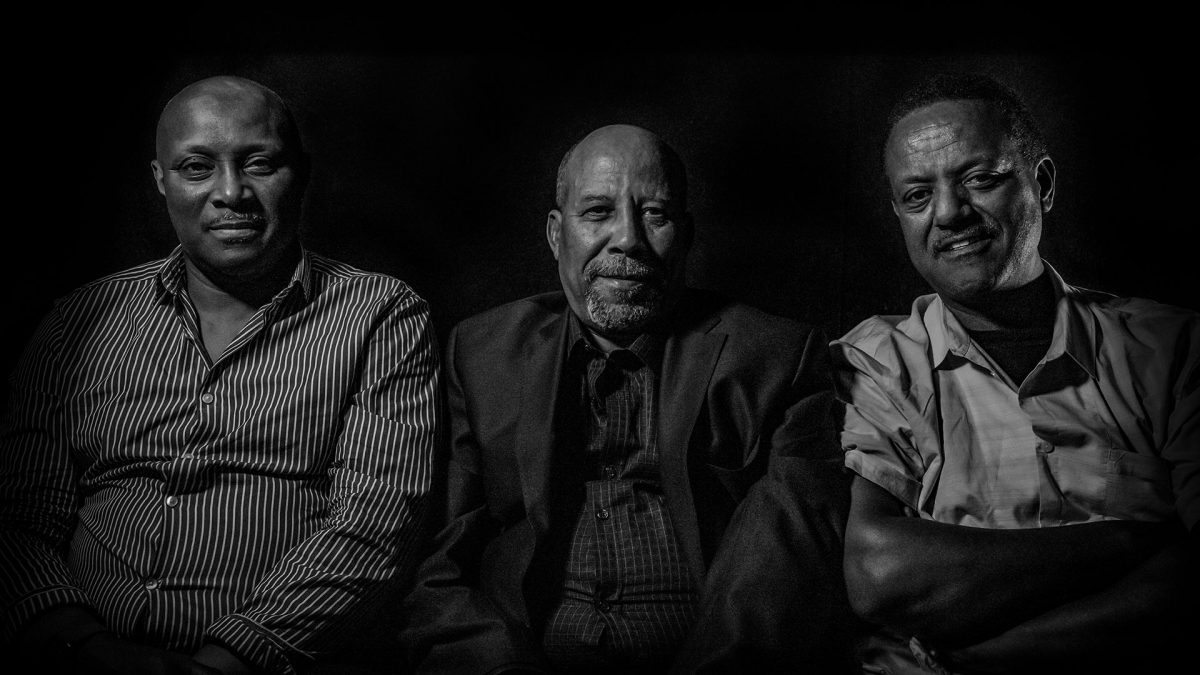
How did you put your band together? Who are the other guys who are with you on stage?
The drummer is Ken Joseph from Trinidad and Tobago and the bass player Alemayehu Borobor was in the Wallias Band and is from Ethiopia. And of course there’s me. I still play with other musicians sometimes but my permanent musicians are Ken and Alemayehu. They are always playing with me.
What is it like being on the road again, post-pandemic? Is the energy different than before?
Well, it’s life changing. We weren’t playing for the last almost two years. I know people are hungry to listen to music and want to go out for shows. And I would like to thank the crowd, because the crowd makes us feel alive. I want to say, thank you so much to everyone who comes out to see me.
In Sheep’s Clothing is powered by its patrons. Become a supporter today and get access to exclusive playlists, events, merch, and vinyl via our Patreon page. Thank you for your continued support.




